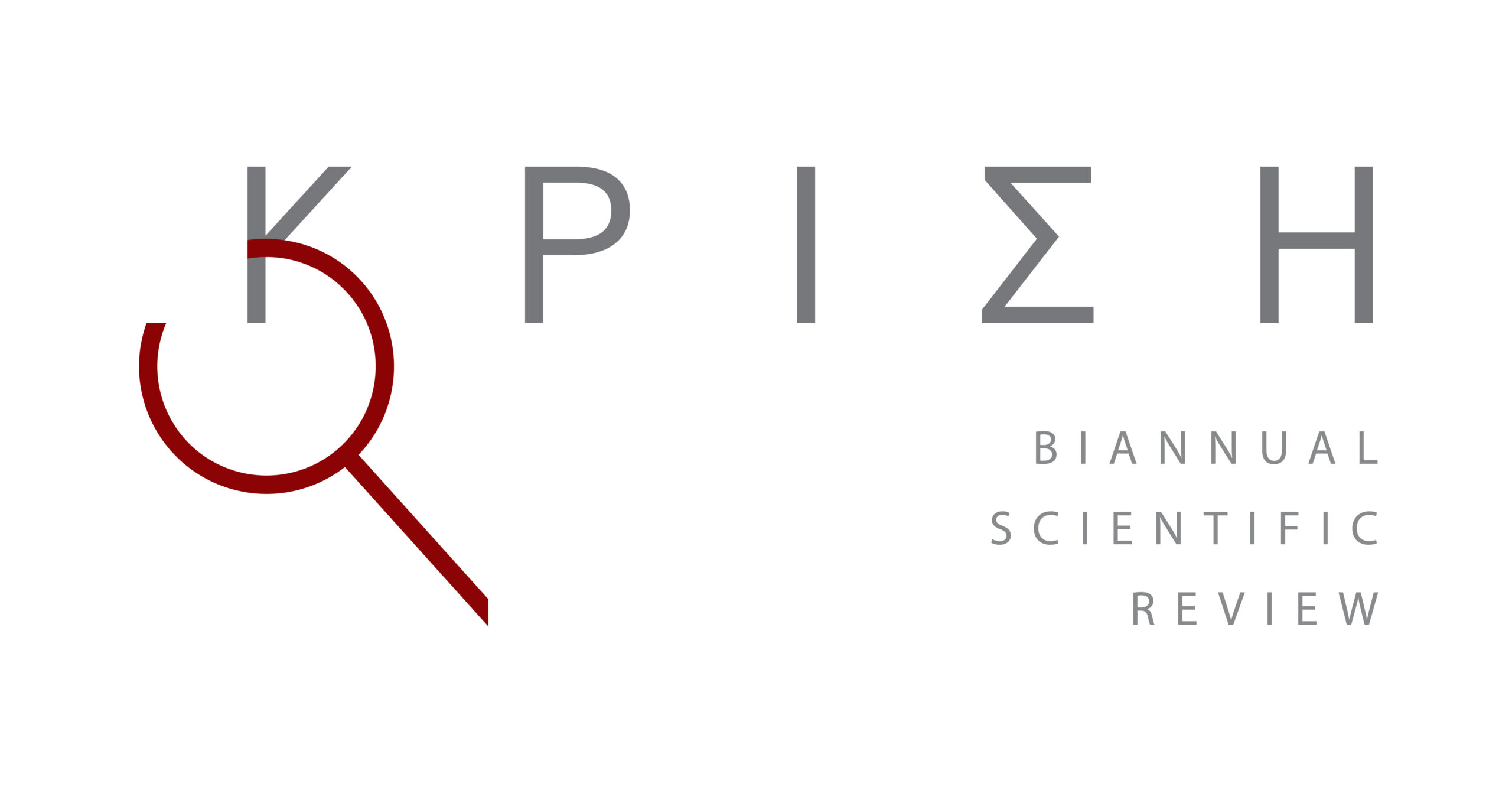In Greek, the word “krisi” (κρίση, pronounced [krísi]) encapsulates at least two broad categories of meaning. On the one hand, it denotes the notions of decision, point of view or opinion and, in close relation, to the notions of criticism, evaluation and judgement. Thus, one person’s κρίση (judgement) could, for instance, be influenced by the overdose of alcohol; the judges, the public servants but also the scientific articles undergo an evaluation [κρίση]. On the other hand, it refers to those situations in which the reproduction of the previous, ordinary or normal condition is difficult or impossible. So, for example, we speak of an asthma “crisis” [κρίση] when the respiratory system does not function normally, or of an economic “crisis” when the economic system does not reproduce itself normally.
The first notion comes from the ancient Greek verb “κρίνω” (“I judge”), which initially meant “to separate”, but soon enough (in the Homer years), also “to decide”. The second notion, which—according to most lexicographers— is metaphorical, is a loan translation or anti-loan from Latin or Romance languages. “Krisi” became crisis (Latin, Eng. & Span.), crise (French) and crisi (Ital.) and then krisι. In this way, while Latin, Romance languages and English have two terms to express the two different family meanings (iudicium, judgement, jugement, juicio, giudizio for ‘judgment’ και crisis, crise, crisi for ‘‘crisis’’), in Greek there is one word only, krisi.
Interestingly, already in ancient Greek we can track some uses of the word which encapsulate both meanings. So, “krisis” could mean a critical point in illness, or the point where the life of the patient is determined. Interestingly, also, independent fields of philosophy bring the two senses condensed to the single Greek word. For example, in the history and philosophy of science “crisis” refers to a situation where the dominant paradigm is unable to reproduce its authority due to a number of empirical anomalies. This stage leads to a more intense criticism, and in decision and judgment making that was not available in the past. In a similar vein, but with several differences, in the area of practical philosophy the concept of crisis denotes the absence of established criteria for undertaking and signifying an action —a situation that necessarily requires criticism and decision making.
It, thus, appears that crisis “creates” indeed “opportunities”, but not the ones suggested by those who favor the reproduction of the current conditions. “Crisis” brings “judgement”. Krisi then…
